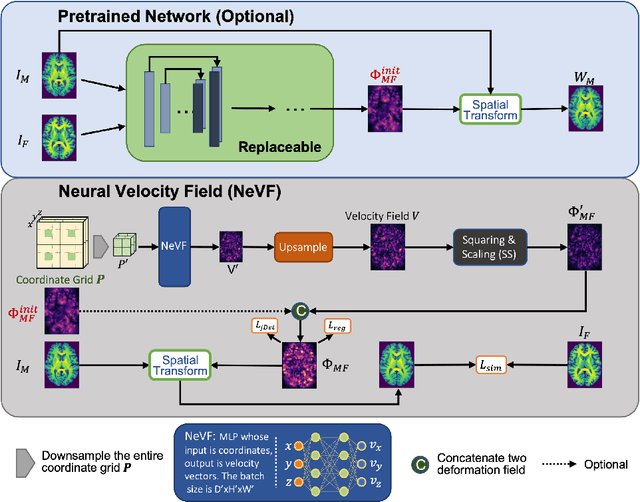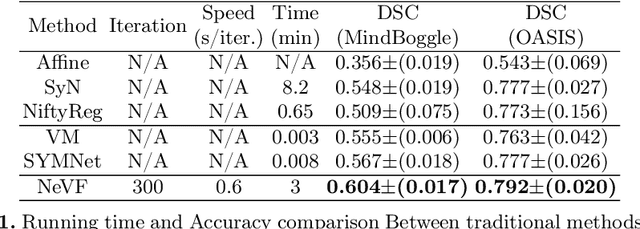Diffeomorphic Image Registration with Neural Velocity Field
Paper and Code
Mar 08, 2022



Diffeomorphic image registration is a crucial task in medical image analysis. Recent learning-based image registration methods utilize convolutional neural networks (CNN) to learn the spatial transformation between image pairs and achieve a fast inference speed. However, these methods often require a large number of training data to improve their generalization abilities. During the test time, learning-based methods might fail to provide a good registration result, which is likely because of the model overfitting on the training dataset. In this paper, we propose a neural representation of continuous velocity field (NeVF) to describe the deformations across two images. Specifically, this neural velocity field assigns a velocity vector to each point in the space, which has higher flexibility in modeling the complex deformation field. Furthermore, we propose a simple sparse-sampling strategy to reduce the memory consumption for the diffeomorphic registration. The proposed NeVF can also incorporate with a pre-trained learning-based model whose predicted deformation is taken as an initial state for optimization. Extensive experiments conducted on two large-scale 3D MR brain scan datasets demonstrate that our proposed method outperforms the state-of-the-art registration methods by a large margin.
 Add to Chrome
Add to Chrome Add to Firefox
Add to Firefox Add to Edge
Add to Edge